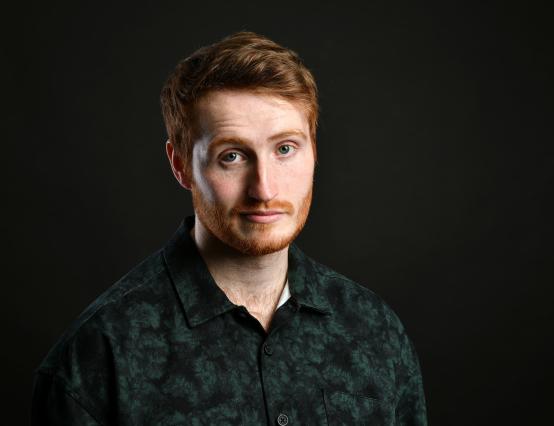In the arts world, experience and personality goes far in helping you get a job. If you don’t have the will, the talent and the professional courtesy, then it won’t matter where you trained or what qualifications you hold. However, as with many professions, going through qualifications can help you gain the experience needed, expand your horizons and in some cases give you key certifications that enable you to go further.
In the professional world there are a number of industry bodies across the arts and creative industries, and most of them offer their own professional level courses. Sometimes they’re actual qualifications, and sometimes they are certifications, but they’re usually recognised. Examples include the ABTT awards, or the Creative Industries Safety Passport. In performance One Dance UK offer a range of professional courses covering teaching, health and more. You can find links to more of these professional organisations on our ‘Useful Arts Websites’ page.
But what if you’re not yet ready for the professional courses? There are a huge range of options and different approaches will be better for different people; you must make your own decision.
GCSEs
With so many GCSE options available, this is a common choice for you to explore a subject. For example, you could take a GCSE in Art, Music, Drama, Music Technology, Media Studies, Textiles, but that’s just a small selection! BBC Bitesize have a great list of your options.
These usually take two years to complete and will incorporate a range of practical and theoretical study. In drama, you might get to study Shakespeare and improvisation, technical skills and directing. So it can give a wide view of the drama world. Similarly, Art can cover print making, oil painting, sculpture and many other specific forms.
GCSEs are usually delivered in schools, at years 10 and 11 in England, although some schools will start you out in year 9 (when you’re 13). They are often considered the base level of qualification for many jobs and further study, especially in English and Maths – so you might also take these at college if needed.
Not all schools offer everything available, and there are usually options from different exam boards which means it can be a different experience per school. Talk to your school head of year, careers team or exams officer about the options available to you.
BTEC
A common BTEC you might consider taking is in performing arts. It provides an opportunity to combine the subjects above, and it offers a range of levels and sizes of qualification. Some schools offer it instead of GCSEs, but when completed it is equivalent to GCSEs. It’s a more practical approach to getting qualified, and is usually assessed as you go along with practical assignments.
BTECs were developed in partnership with industry representatives so all employer and student needs are met. Many professional bodies offer successful BTEC students exemptions for their own accredited qualifications.
Usually you take BTECs at schools or colleges, often at GCSE, but you can also do them at A Level too.
Apprenticeships
A bit like GCSE options, there are a wide array of these available.
You could get one in IT, Customer Service, Business Admin, Social Media and other support roles within the industry, to list just a few examples. Or maybe you’d rather work in Community Arts, Venue Operations, Technical Theatre, broadcast engineering and even become a Cultural Learning & Participation Officer (great if you’re keen to work in an education department at a venue or organisation)? What’s more there’s one in being an Assistant Technical Director (Visual Effects) and as a Cultural heritage conservation technician.
What I’m trying to say is, there are a great variety of options available to you.
Apprenticeships are associated with trades traditionally, but they cover so much more nowadays, and you can take them from Level 2 (GCSE equivalent) right up to Level 7 (Masters level, beyond your university degree). Different subjects have different routes, and it’s best to discuss your options with any career or employability teams at your school/college/university).
You are paid for your time getting work experience as an employee of the company and usually your qualification costs are covered too. Find out more on the Institute for Apprenticeships website.
A Levels
Typically these are considered the ‘academic route’ and again have a wide offering of subjects, school or college dependent. They take two years typically and, like GCSEs, are usually a combination of practical and theory. Also like GCSEs, the subject matter can vary and is often pre-chosen by the school or college and you study what they plan.
Graded exams
These are a great route for performers and there are exams available through a number of grades from initial to diploma.
Trinity College London offer grades in a huge number of musical instruments (including vocals) through their Classical & Jazz programme and their Rock & Pop which offer two different styles. There’s also grades in drama and performance too.
These grade exams are offered by many music services, some schools, independent music teachers and theatre groups. Different venues/teachers will offer different exam boards, but these exams are available on a number of different boards. Usually you pay the fee to enter for a particular grade and demonstrate your ability by performing pieces. At the higher grades you may also need to demonstrate other technical abilities and understanding of the subject. You can go straight in to whatever grade is appropriate for you.
Grades 6-8 from Trinity College London carry UCAS points!
Graded exams are usually studied for in your free time and taken whenever suits you. You may have to pay the exam fees as well as any costs to your tutor too. Find out more about grade exams.
Arts Award
We love Arts Award at Voice, it’s a portfolio qualification offered by thousands of schools, theatres, musical and other groups up and down the UK. There are no exams, and you just create a portfolio that demonstrates how you’ve met the different requirements involved. It starts with a certificate at Discover level, then goes to Explore, Bronze, Silver and Gold. Silver is the equivalent standard of GCSE level and Gold is A-Level which also carries UCAS points.
You can take an Arts Award at any level relevant to you. You will need to demonstrate your development in a particular art form, and at Silver and Gold you get to deliver a project. You will develop your teamwork, confidence, leadership and communication skills.
We have loads of information about Arts Award on artsawardvoice.com
OCN
Some groups (mainly informal education groups) will offer qualifications that may be accredited by the Open College Network. There are accreditations available in a range of topics like digital media, performing arts and choreography. These are usually delivered as portfolio qualifications (like Arts Award above) and this means you undertake your work, and put it together in a portfolio like a sketchbook or online storage, then submit it for assessment by someone who checks whether you’ve covered everything. This could be evidence of practical tasks and write-ups about some research or what you’ve been doing.
Many OCN courses are based on ‘units’ which are each of the subject topics you study, which means you could do a whole combination of different topics.
Usually you’d take these on a course outside school, sometimes over a year, sometimes in a week. They’re pretty flexible and useful. You might pay for them yourself or have them funded by a local council or college. Find out more at OCN London.
Foundation Degrees
A very common route to further study in art is to take a foundation degree first, although there’s also courses available in drama and other subjects too. They’re a great way to get university-level training in one year, exploring the subject more and often taking a very practical approach. Usually you need to have A-Levels or equivalent qualifications. Some colleges offer foundation degrees as well as universities.
Usually you would pay for a foundation course (probably using money from a student finance loan). Find out more about Foundation Degrees.
University
Everyone knows that there is almost any subject you can imagine at university, and often quite specific courses in photography, media, directing, community theatre, music, conducting and other topics. So you could go quite broad and take modules in particular subject matters, or take a course already on a particular route to your chosen subject and specialise earlier on.
There are large fees involved in University study generally. A good place to look for a broad range of courses is ucas.com









0 Comments